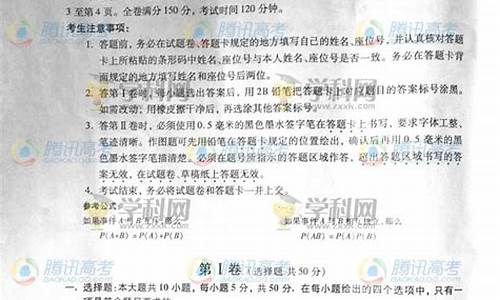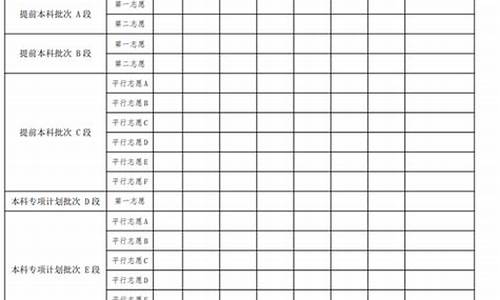您现在的位置是: 首页 > 政策解读 政策解读
2014年高考英语真题_2014高考英语真题四川卷
tamoadmin 2024-05-23 人已围观
简介1.亲!谁有2014高考英语语法填空的题?2.求 2014年高考新课标2卷英语的阅读理解及完形填空的译文3.上海2014英语高考阅读理 第68题 为什么不选B4.求福建省历年高考英语听力音频和原文5.2019年河北高考英语试卷答案解析及点评(WORD文字版)财富曾始于一个目标节约一元钱。把它叫做储蓄罐策略。有在这历史悠久的硬币节能容器的经验教训。 任何艰巨的任务似乎当减小到婴儿的步骤更简单。假如你
1.亲!谁有2014高考英语语法填空的题?
2.求 2014年高考新课标2卷英语的阅读理解及完形填空的译文
3.上海2014英语高考阅读理 第68题 为什么不选B
4.求福建省历年高考英语听力音频和原文
5.2019年河北高考英语试卷答案解析及点评(WORD文字版)

财富曾始于一个目标节约一元钱。把它叫做储蓄罐策略。有在这历史悠久的硬币节能容器的经验教训。 任何艰巨的任务似乎当减小到婴儿的步骤更简单。假如你想爬上12000英尺高的山上,并可能一天的时间去做它,你将只需要爬33英尺每天达到顶峰的一年。如果你想采取一个非常好的行程,10年为一个特殊的场合,收取1.5万美元的成本,你必须保存一天3.93美元。如果你删除一个成一个储蓄罐,然后每年一次把1434美元在一个储蓄帐户在1%的利率税后,你将有你的旅行的钱。 当我还是个孩子,我的父母给了我一个储蓄罐教我说,如果我想要的东西,我要攒钱买它。我们扑满与孩子联系起来,但在许多国家,小容器也深受成年人。欧洲人看到一个储蓄罐作为吉祥和财富的象征。在世界各地,许多人认为在元旦储蓄罐的礼物带来好运和财务上的成功。啊,但你必须把它的东西。 为什么猪作为储蓄的象征?为什么不象银行,这是更大,并拥有更多的硬币?在中世纪,现代银行和信用工具之前,人们节省下来的钱在家里,几个硬币在一个时间投进一个罐子或盘子。制陶工从一个桔**的黏土制成所谓的这些廉价的容器“pygg,”和人在pygg jars.The中古英语单词储存硬币 猪是“pigge”。而撒克逊人明显pygg,指的是粘土,为“哈巴狗”,最终这两个词变成相同的发音,听起来“我”在猪或小猪。因为这个词成为与橙色粘土和更多的动物,一个聪明的陶工塑造一个pygg罐子在猪的形状,取悦儿童和成人较少有关。扑满诞生了。 本来你必须打破银行取到钱,带来严肃的感觉变成储蓄。虽然扑满教孩子储蓄的智慧,成年人往往需要重新学习的童年经验教训。想想看,需要大量的金钱在生活中的事情---大专以上学历,婚礼,汽车,医疗,创业,置业,和有趣的东西一样伟大的旅行。所以,当你有钱,脱下的前10%,把它放在一边,保存和明智地投资。
亲!谁有2014高考英语语法填空的题?
My dream school starts at 8:30 a.m. and ends at 3:30 p.m. They are three lessons in the morning and two in the afternoon. We didn’t need to do so many homework. Therefore, we have more time with after-school activities. For example, we can do reading for one and a half hour and play sports for one hour every day.
My dream school look like a big garden. There are all kinds of the flowers and trees around the classroom buildings. We can lie on the grass for a rest, or sat by the lake listening music. The teachers here are kind and helpfully. They are not only our teachers but also our friends.
答案:
They--There
didn't--don't
many--much
with--for
hour--hours
look--looks
the flowers--flowers
sat--sit
listening--listening to
helpfully--helpful
求 2014年高考新课标2卷英语的阅读理解及完形填空的译文
1. After dinner the minister made a short ___to the guests.
A. talk B. pronunciation C. conversation D. speech
2. Those are very pleasant rooms. How much do you __them?
A. want B. demand C. ask for D. ask
3. A mistake is not serious unless it is _____.
A. made B. well-known C. great D. repeated
4. He ___live in the country than in the city.
A. prefers to B. likes to C. had better D. would rather
5. You can _____my surprise when I heard the news.
A. suppose B. see C. imagine D. believe
6. Peter begged his neighbour to ____him twenty pounds until the weekend.
A. lend B. supply C. borrow D. give
7. I have always ___you my best friend.
A. regard B. considered C. trusted D. found
8. I sat near the entrance for a long time ___him, but he didn’t arrive.
A. expecting B. waiting C. hoping D. wanting
9. Looking for new ways to do old jobs means _______.
A. work B. goodness C. success D. progress
10. Bats do not see well. Instead, they ____where they are going.
A. smell B. listen to C. watch D. ask
11. I’m __to get the tickets for the show, as there are hardly any left.
A. worried B. anxious C. after D. troubled
12. The more you ____things to chance, the less chance there is for you.
A. leave B. have C. take D. put
13. This year the farmers were just able to gather in the _____before the fine weather came to an end.
A. fields B. plants C. seeds D. harvest
14. His ____of the plane was correct and could really fly.
A. shape B. pattern C. design D. model
15. He left in such a hurry that I ____had time to speak to him.
A. hardly B. almost C. even D. nearly
上海2014英语高考阅读理 第68题 为什么不选B
C 篇
在人们心目中一个专业的训狮员就是一手挥鞭一手持椅的逗乐人。鞭子捕获了所有的注意 力,而事实上,鞭子大部分时间只是表演。 ,真正起作用的是椅子。当巡视员手拿椅子出现在狮子 面前,狮子试图把注意力同时放在四条椅子腿上。由于注意力被分散,狮子变得迷惑不知道下一步 做什么。当面对太多的选择,狮子选择僵持和等候,而不再攻击持椅人。 有多少次你感觉自己和狮子一样处于一样的境地?又有多少次你心存目标如减肥、开办企业或 是游历更多地方 ,但结果只是止于对眼前诸多选择的困惑而最终毫无进展? 这种情况一直是我不安烦恼,因为当所有的专家忙着讨论那个是最佳选择时,想要提升自我生 活的人们却被各种充满矛盾和冲突的信息所困惑。 最终的结果就是我们感觉不能集中精力或我们正 把精力投在错误的事情上,之后我们不再作为,进展很小,在我们 本能提升的时候却原地不动。 事情本不必那样。 任何时候当你发觉世界在你面前惠东椅子时, 记住这点:你需要的就是集 中精力做好一件事。你只需立即开始。 在你感觉就绪前 就开始行动是许多成功人士的习惯。如果 你有想要去的地方,想要完成的事情,想要成为某种人士。 。 。立即采取行动!如果你清楚地知道你 想要去的地方,世界所有其他不是帮助你到那就是为你让路。
D篇
随着越来越多的人说诸如英语、汉语、西班牙语和阿拉伯语等世界语言,其他语种正迅速 消失。事实上,根据世界教科文组织的调查,今天在世界上使用的 6000-7000 种语言中的一半很可 能将会在下一个世纪消亡。 在阻止语言消亡的努力中,来自许多组织的学者,包括教科文和国家性地质人员在内,已经花费 许多年时间在整理那些正在消亡的语言和文化。 M 耶鲁大学的一位科学家,专注于喜马拉雅山地区的语言和口述的传统,也正在记录那的传统。他 最近出版的那本书,就出自他在尼泊尔的一个村子的生活、工作和抚养一个家庭的经历。 记录 T 的语言和文化,对于他来说只是一个起点,他努力寻求其他的语言和传统,包括喜马拉 雅山地区的印度、尼泊尔、不丹和中国。 。但是他不满足于仅仅记录那些即将消亡的声音。 在剑桥大学他发现极有价值的重要资料包括照片,**,录音材料,驻地记录等,这个仍然未 被研究急需关注和保护。 现在通过他创建的两个组织他已经发起了一项运动以便使在世界范围内的图书馆和储藏的资 料能为年轻一代所用, 而不仅仅局限于那些学者。 M 说, 多亏有数码技术和遍及全世界的网络技术, 那些濒危的语言才能够被拯救并与各语言研
求福建省历年高考英语听力音频和原文
选项A. Some chimps lower their cry to keep food away from others.意思是:一些猩猩降低叫声的音量,目的是不让其他动物知道它发现了食物。keep...away from使...远离
选项B. The losing chimp won the fight by taking the winner's hand.意思是:打斗输了的猩猩通过抓住胜者的手来赢得胜利。
你所说的倒数第三段最后一句你理解错了After a fight, the losing chimp will give its hand to the other. When the winning chimp puts out its hand, too, the chimps are friendly again. But an animal expert once saw a losing chimp take the winner's hand and start fighting again.意思是:打斗后,输 了的猩猩会把手递给对方。获胜方也会伸出手,两个猩猩便重归于好了。可是动物专家曾经看到过打输了的猩猩拉起胜方的手后,再次开打。
明白了意思,你还认为B对吗?
2019年河北高考英语试卷答案解析及点评(WORD文字版)
2014年福建省高考英语听力原文
Text 1
W: Excuse me. This is the address. How do I find it?
M: Right. You’ll need a street map. Here’s one, and I’ll show you where it is.
Text 2
W: Oh my! My car broke down, and I have to meet my aunt at the railway station before noon.
M: You’re lucky. I can drop you off on my way.
Text 3
W: Did you hear that Mr. Peterson is coming next week, Gordon?
M: Yes, so I called all the department heads to my office this morning. We need to give him reports on our program.
Text 4
W: I hope you like the book I lent you. I wasn’t sure if you’d be interested.
M: I had the same doubt at first. But once I started, I simply couldn’t put it down.
Text 5
W: What is going on? It’s May, and we still have to wear warm clothes.
M: Well, there’s some good news on the radio. You probably can wear shorts tomorrow.
Text 6
W: Harry, let’s play some ping-pong today.
M: I’d love to play a set or two, but my right arm hurts. I’ve decided to stop playing ping-pong until it feels better.
W: Well, how about going skating?
M: I’d like to, but my knee hurts, too.
W: Harry, stop making excuses! You’re just lazy.
M: No, I’m not! You know, there’s a basketball match on TV today. Let’s just stay home and watch it.
W: OK. You stay, and I’ll play with Helen.
Text 7
W: What do you want to do tonight?
M: How about going to the cinema? I should be home from work at 5:45. Then we can go out and eat before we see a film.
W: What do you want to see?
M: There’s a good art film at the Green House Cinema.
W: Let’s see…it starts at 6:15. I don’t think we can get there in time to see the beginning. How about the action film at the New State Cinema? It starts at 6:50. Perhaps the 7:00 one at the UME Cinema is even better. It stars Jackie Chan.
M: OK, that’s fine. I like him, too.
Text 8
M: Hey, Lucy. Do you have some time to talk about next week’s trip with me?
W: Sure, Dave.
M: OK. So, we’re leaving on Monday from Hartsfield International Airport, and returning on Friday. Do we take ourselves to the airport? Maybe we need to book a taxi, or just go by bus.
W: No, we don’t have to. The company car will pick us up and take us there.
M: Oh, that’s good. When?
W: Our flight leaves at 11:00 a.m., so they should pick us up between 8:00 and 9:00 a.m. Besides, the company pays for our trip, including hotel and food.
M: How much will that be?
W: Well, New York is a pretty expensive city. So, each of us will get $200 a day.
M: Oh, OK. Thanks for telling me that.
W: You’re welcome.
Text 9
W: Please sit down. Let’s see…you’re Mr. Smith. Is that correct?
M: Yes. John Smith.
W: And you’re interested in this job?
M: Yes, I am. I’ll graduate from college the coming June. My major is Chinese.
W: I see. Have you ever done any work in this field?
M: Yes, I used to be a tour guide for Chinese travellers.
W: Good. Now, how much money do you expect to have for a year?
M: From what I’ve read, it seems that a starting pay would be around $12,000 a year.
W: Here, you would start at $10,500 for the first year…a kind of training period. Then you would go to $15,000.
M: That sounds fair enough. What do you think are the chances for me to get a job here?
W: Well, I’m talking to three people today and four tomorrow. We’ll be hiring two people. You’ll hear from us sometime next month. Good luck! And thanks for coming in today.
Text 10
M: Well, I’d love to share with you my personal opinions on city life and life in small towns. I grew up in a small town until I was 18 and then moved to a big city, so I have experienced the good and bad sides of both. I never thought that I would like living in a big city, but I was wrong. After ten years of living in one, I can’t imagine ever living in a small town again. Surely small towns and big cities both have some problems in terms of transport. In a small town, you have to own a car to make life comfortable. You can’t get around without one because there isn’t any kind of public transport. Big cities generally have heavy traffic and expensive parking, but there you have a choice of taking public transport, which is cheaper than driving. So, if you don’t have a car, you’d better live in the city. I also love the exciting life in big cities. I can always enjoy a lot of films, concerts, and other wonderful shows. However, these things are not common in small towns. The final thing I like about large cities is that you can meet different kinds of people. However, you seldom find such a variety of people in a smaller town. I think that living in an area where everyone was just like me would quickly become dull. Of course, safety should be considered, and that’s one area where small towns are better than big cities. Still, I would rather be a bit more careful and live in a large city than to feel safe but dull.
第一节(共5小题,每小题1.5分,满分7.5分)
听下面5段对话。每段对话后有一个小题,从题中所给的A、B、C三个选项中选出最佳选项,并标在试卷的相应位置。听完每段对话后,你都有10秒种的时间来回答有关小题和阅读下一小题,每段对话仅读一遍。
例:How much is the shirt?
A. £19.15 B. £9.18 C. £9.15
答案是C。
1.What does the woman want to do?
A. Find a place. B. Buy a map. C. Get an address.
2.What does the man do for the woman?
A. Repair her car B. Give her a ride C. Pick up her aunt.
3.Who might Mr. Peterson be?
A. A new professor B. A department head C. A company director.
4. What does the man think of the book?
A. Quite difficult. B. Very interesting. C. Too simple.
5. What are the speakers talking about?
A. Weather B. Clothes C. News.
第二节(共15小题,每小题1.5分,满分22.5分)
听下面5段对话或独白,每段对话或独白后有几个小题,从题中所给的A、B、C三个选项中选出最佳选项,并标在试卷的相应位置。听每段对话或独白前,你将有时间阅读各个小题,每小题5秒钟;听完后,各小题给出5秒钟的作答时间。每段对话或独白读两遍。
听第6段材料,回答6、7小题。
6. Why is Harry unwilling to join the woman?
A. He has a pain in his knee.
B. He wants to watch TV.
C. he is too lazy.
7. What will the woman probably do next?
A. Stay at home.
B. Take Harry to hospital.
C. Do some exercise.
听第7段对话,回答8、9小题。
8. When will the man be home from work?
A. At 5:45 B. At 6:15 C. At 6:50
9. Where will the speakers go?
A. The Green House Cinema. B. The New State Cinema. C. The UME Cinema.
听第8段对话,回答第10至12题。
10. How will the speakers go to New York?
A. By air. B. By taxi. C. By bus.
11. Why are the speakers making the trip?
A. For business. B. For shopping. C. For holiday.
12. What is the probalbe relationship between the speakers?
A. Driver and passenger B. Husband and wife C. Fellow workers.
听第9段对话,回答第13至16题。
13. Where does this conversation probably take place?
A. In a restaurant. B. In an office. C. In a classroom.
14. What does John do now?
A. He’s a trainer. B. He’s a tour guide. C. He’s a college student.
15. How much can a new person earn for the first year?
A. $10,500. B. $12,000. C. $15,000.
16. How many people will the woman hire?
A. Four B. Three C. Two
听第10段材料,回答第17至20题。
17. How long has the speaker lived in a big city?
A. One year. B. Ten years. C. Eighteen years
18. What is the speaker’s opinion on public transport?
A. It’s comfortable B. It’s time-saving C. It’s cheap.
19. What is good about living in a small town?
A. It’s safer. B. It’s healthier. C. It’s more convenient.
20. What kind of life does the speaker seem to like most?
A. Busy. B. Colourful. C. Quiet.
2014年普通高等学校招生全国统一考试(山西新课标I)
英语
注意事项:
1本试卷分第I卷(选择题)和第II卷(非选择题)两部分。
2答题前,考生务必将自己的姓名、准考证号填写在本试卷相应的位置。
3.全部答案在答题卡上完成,答在本试卷上无效。
4.第I卷听力部分满分30分,不计入总分,考试成绩录取时提供给高校作参考。
5考试结束后,将本试卷和答题卡一并交回。
第I卷
第一部分听力(共两节,满分30分)
做题时,先将答案标在试卷上。录音内容结束后,你将有两分钟的时间将试卷上的答案转涂到答题卡上。
第一节(共5小题;每小题1.5分,满分7.5分)
听下面5段对话。每段对话后有一个小题,从题中所给的A、B、C三个选项中选出最佳选项,并标在试卷的相应位置。听完每段对话后,你都有10称钟的时间来回答有关小题如阅读下一小题。每段对话仅读一遍。
例:Howmuchistheshirt?
A.£19.15.B.£9.18.C.£9.15.
答案是C。
1.Whatdoesthewomanwanttodo?
A.Findaplace.B.Buyamap.C.Getanaddress.
2.Whatwillthemandoforthewoman?
A.Repairhercar.
B.Giveheraride..
C.Pickupheraunt.
3.WhomightMr.Petersonbe?
A.Anewprofessor.
B.Adepartmenthead.
C.Acompanydirector.
4.Whatdoesthemanthinkofthebook?
A.Quitedifficult..
B.Veryinteresting.
C.Toosimple.
5.Whatarethespeakerstalkingabout?
A.Weather.
B.Clothes.
C.News.









